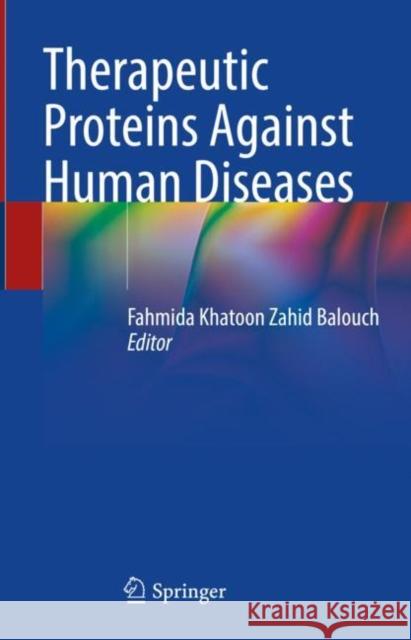Therapeutic Proteins Against Human Diseases » książka
topmenu
Therapeutic Proteins Against Human Diseases
ISBN-13: 9789811678967 / Angielski / Twarda / 2022
Therapeutic Proteins Against Human Diseases
ISBN-13: 9789811678967 / Angielski / Twarda / 2022
cena 402,53
(netto: 383,36 VAT: 5%)
Najniższa cena z 30 dni: 385,52
(netto: 383,36 VAT: 5%)
Najniższa cena z 30 dni: 385,52
Termin realizacji zamówienia:
ok. 22 dni roboczych.
ok. 22 dni roboczych.
Darmowa dostawa!
This book compiles updated research about the implications of therapeutic proteins in various human diseases. The initial chapters of the book provide basic information on the therapeutic proteins and discuss techniques for their formulation, production, and analytic approaches for their characterization. The subsequent chapters shed light on therapies based on therapeutic proteins against metabolic disorders, neurological disorders, cancer, autoimmune disorders, and infectious diseases. Importantly, it presents the factors influencing the immunogenicity of therapeutic proteins, including, genetic factors, disease type, and origin of therapeutic protein, dose frequency, administration route, and treatment duration. The book also reviews the strategies for reducing immunogenicity associated with therapeutic proteins, including PEGylation, site specific mutagenesis, exon shuffling, and humanizing of monoclonal antibodies. Further, it presents strategies for improving the typical drawback associated with protein therapeutics including instability and limited penetration through biological barriers. This book covers various computational methods that are commonly used for designing therapeutic proteins and in silico method for predicting and improving in vivo efficacy of the therapeutic molecules. Lastly, the book highlights the recent advances in developing nanosized delivery systems to improve safety and efficacy of protein therapeutics.
This book caters to students and researchers of medicinal chemistry, pharmaceutical sciences and therapeutics. It is also useful to clinicians working with therapeutic proteins.











